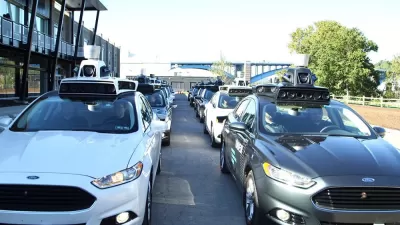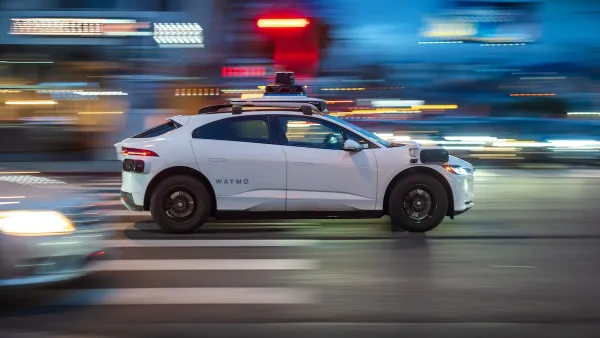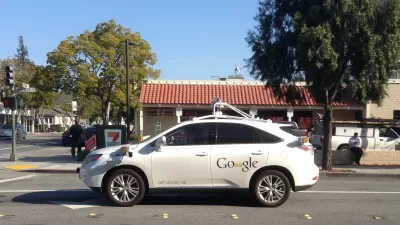In the wake of a high-profile (and fatal) accident involving an autonomous Uber car, the safety debate is trending. But the broader economic picture still points to a future of shared driverless rides.

After an Uber self-driving prototype struck and killed a pedestrian in Arizona, the company has suspended test operations in other cities. But according to this piece from the Economist, self-drivers will likely hit the streets as fleets of "robotaxis" in the Uber vein, not as privately-owned vehicles. That is, if the technology can be made safe enough.
"Although today's experimental vehicles are modified versions of ordinary cars, with steering wheels that eerily turn by themselves, future AVs will have no steering wheel or pedals and will come in all sorts of shapes and sizes; pods capable of carrying six or eight people may prove to be the most efficient design."
The economic argument here is that robotaxis can earn for most of the day, while private vehicles sit idle most of the time. "The initial deployment of self-driving vehicles as robotaxis makes sense because they only need to work within a particular area—and because the sensors needed for a fully autonomous AV to sense its surroundings and figure out how to respond currently cost more than the vehicle itself."
The piece conjectures that in several decades, robotaxis will account for the majority of urban miles travelled. That'll open up plenty of land currently used for parking. "Eventually, perhaps by 2030 or so, the cost of sensors will fall and it will no longer be prohibitively expensive to buy your own self-driving vehicle. The question then is whether you would want to."
FULL STORY: Why driverless cars will mostly be shared, not owned

Maui's Vacation Rental Debate Turns Ugly
Verbal attacks, misinformation campaigns and fistfights plague a high-stakes debate to convert thousands of vacation rentals into long-term housing.

Planetizen Federal Action Tracker
A weekly monitor of how Trump’s orders and actions are impacting planners and planning in America.

San Francisco Suspends Traffic Calming Amidst Record Deaths
Citing “a challenging fiscal landscape,” the city will cease the program on the heels of 42 traffic deaths, including 24 pedestrians.

Adaptive Reuse Will Create Housing in a Suburban Texas Strip Mall
A developer is reimagining a strip mall property as a mixed-use complex with housing and retail.

Study: Anti-Homelessness Laws Don’t Work
Research shows that punitive measures that criminalized unhoused people don’t help reduce homelessness.

In U.S., Urban Gondolas Face Uphill Battle
Cities in Latin America and Europe have embraced aerial transitways — AKA gondolas — as sustainable, convenient urban transport, especially in tricky geographies. American cities have yet to catch up.
Urban Design for Planners 1: Software Tools
This six-course series explores essential urban design concepts using open source software and equips planners with the tools they need to participate fully in the urban design process.
Planning for Universal Design
Learn the tools for implementing Universal Design in planning regulations.
Heyer Gruel & Associates PA
JM Goldson LLC
Custer County Colorado
City of Camden Redevelopment Agency
City of Astoria
Transportation Research & Education Center (TREC) at Portland State University
Jefferson Parish Government
Camden Redevelopment Agency
City of Claremont





























